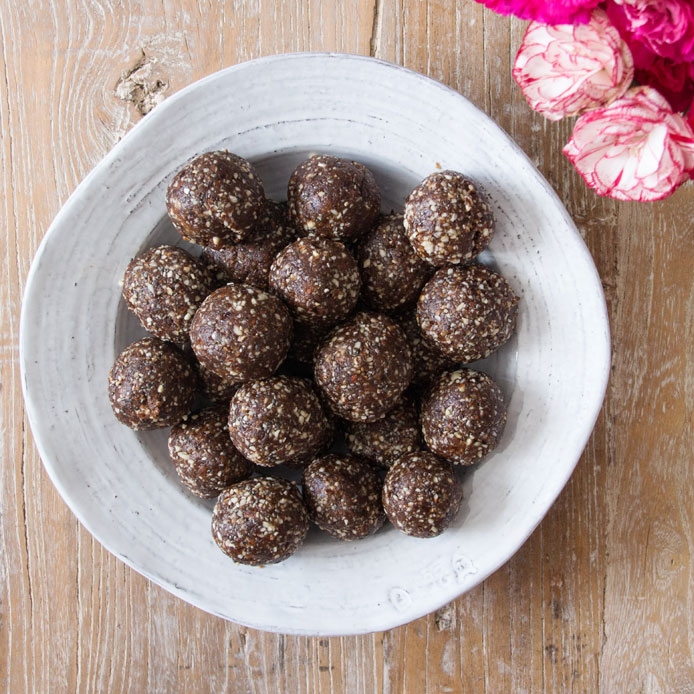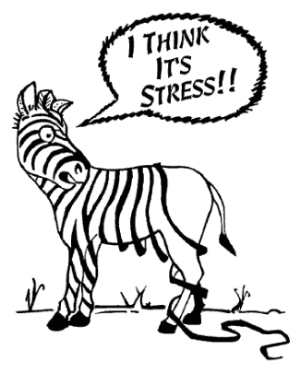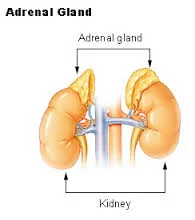Anxiety - It is a word heard more and more among people today, since the medical community is opening up more about mental health. It is not something we should shy away from, but support each other through.
I have come to realize, over the years of being a perfectionist, studying in medical school, and starting a practice of my own, that I suffer from anxiety. I understand why people keep it to themselves, because it is actually a hard thing to admit, and a frustrating thing to live with. Because of my anxiety, at times I question whether or not I am are good enough, healthy enough and capable of achieving what I want. My mind gets in the way, even though I know it is irrational. My thoughts can take over, making me less productive. It makes only a few tasks seem like a million that I will never be able to wade through. But this doesn't always have to happen. Taking care of myself and following these steps help to push those anxious feelings aside and go on living a happy and healthy life.
Types and Symptoms of Anxiety:
- Generalized anxiety disorder (GAD) - Characterized by excessive anxiety and worry. These feelings are associated with 3 of the following: restlessness or feeling "on-edge", easily fatigued, difficulty concentrating, muscle tension, irritability and sleep disturbances.
- Social anxiety - Fear of social or performance situations, to the extent that their ability to perform at work or school is impaired. Avoidance, anticipation or distress occurs.
- Panic disorder - Feelings of terror or anxiety strike suddenly and repeated with no warning. A panic attack occurs, including sweating, palpitations, shaking, dizziness and difficulty breathing. They can last anywhere from 3 to 10 minutes.
- Agoraphobia - Fear of places and situations that might cause panic, helplessness, or embarrassment. Usually results from a previous panic attack in a certain area or situation (eg. heights, public spaces, small spaces etc.)
*Remember, none of these types make you inadequate or imperfect, simply who you are. Anxiety also comes in all sorts of shapes and sizes so a diagnoses is not necessary in order to benefit from these steps.
6 Steps to Take:
- Routine - I'll say it time and time again, our bodies LOVE routine! Hormones, including cortisol and melatonin, have a rhythm to them and a lack of routine affects these rhythms, leading to issues with energy and mood. Often we press snooze upon waking, rush off to work without eating or pooping, and are on our phones until we hit the pillow. Have a dog? Follow their cues! Wake and eat at the same time, walk every day, cuddle something, drink water and go to sleep at the same time.
- Deep breathing/meditation - When we are frightening we tend to breath in and hold our breath. This stimulates "fight or flight". Therefore exhaling is even more important, as it stimulates our sympathetic nervous system ("rest and digest"). Shallow breathing is also a common habit, stimulating anxious feelings. Focusing on deep breathing, expanding both your chest and belly for around a count of 6, in and out, is helpful. Start small - 5 minutes 2x/day. Or delve into mediation using apps such as Calm, Breathe or Headspace. Or join me on Deepak Chopra's 21 day meditation. This is one reason why I love yoga, because it connect the mind and the body through breath and meditation.
- Nourish with food - We are what we eat! A diet abundant in brain foods such as fish, nuts and seeds, avocado, fermented foods and healthy oils (coconut, EVOO, grapeseed) help to feed the brain. A diet with colourful vegetables and fruit, contribute necessary vitamins and minerals and good quality protein aids to build proper hormones and neurotransmitters. Try this delicious and quick salmon recipe.
- Sleep - With our busy lives, our sleep is something that usually suffers. It is an important part of our routine, in order to get enough stage 4 sleep. This is the healing phase, where tissue repair, detoxification and healing occurs. Without enough sleep, inflammation increasing, in turn increasing cortisol and feelings of anxiety and stress. Try lavender essential oil on your pillow or in a bath before bed to help calm your mind.
- Open up - This can be either discussing how you feel with family or friends or putting it on paper. Holding in our emotions is a form of stress, which can translate into other symptoms over time (eg. eczema, bloating, headaches), so get it out! Naturopathic Doctors, Psychologist, or counsellors are available to listen and help wade through your limiting emotions.
- Support with supplements - There are several great nutraceuticals and herbs, called nervines, available to help calm the mind. My favourites are L-theanine, schizandra berries, ashwaghanda, passionflower and oats. Specific dosing and herbs depend on the person and situation. Visit an ND to find the right supplement for you.
Finally, anxiety may occur due to other issues such as poor digestion, nutrient deficiencies and thyroid issues. Naturopathic Doctors can help decipher what the root cause is. Remember, bad weeks happen, but what is important is knowing that you can get through it using these steps and with the support around you.
Looking for support? I offer 15 minute complimentary consults to help answer any questions you have about Naturopathic Medicine or to see if it is the right fit. Visit Get In Touch to learn more.
In health & happiness,
Dr. Karen
(Photo credit: everythingedrecovery.com; pinterest)












